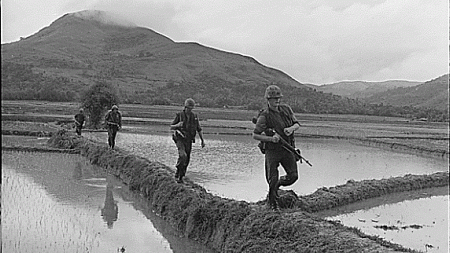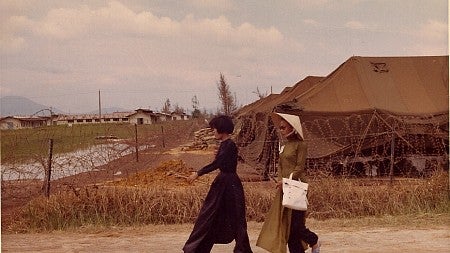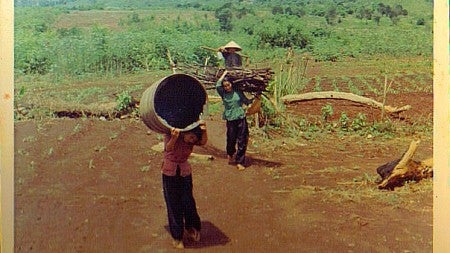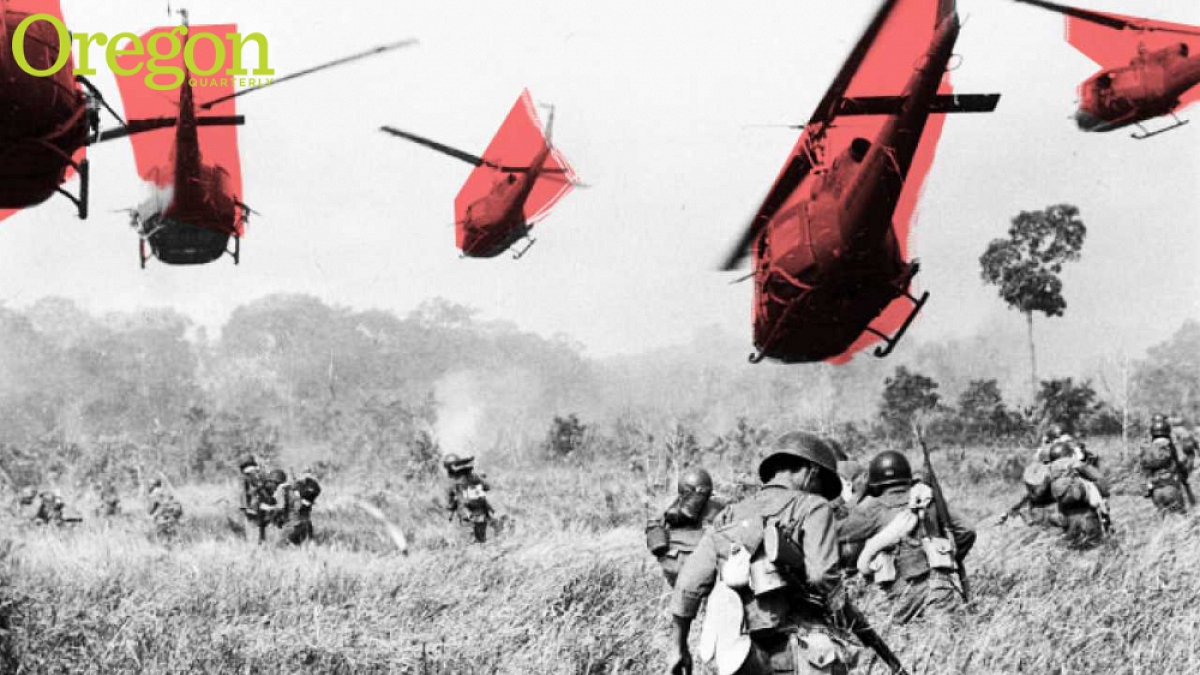I’m on the front line of the baby boomers, born in 1946, six years after the youngest of my three older siblings, each of them twenty-four months apart in a family planning sort of way. Because they were all sent off to boarding schools by the time I was six, not uncommon in the New England I called home, I was basically an only child, a tag-along, relegated to accompanying my mother on her various errands. She apparently felt this unplanned fourth child needed explaining, maybe because she was forty-two years old when she gave birth and it was unusual, in those days, to be so old with a child so young. Whatever the reason, in casual conversations with bank tellers, gas attendants, and hair dressers my mother would, unprompted, introduce me as her “surprise,” “accident,” “mistake,” or “afterthought.” If not stirring feelings of unwelcome in me, it must have prompted slightly inappropriate images of unbridled passion between my mother and father in the imagination of the postal clerk. A lot of adults leapt into the postwar sack, producing a crop of us oops and accidents thanks to couples’ happy and incautious reunions after World War II. My mother related that the halls of the Boston Lying-in Hospital were lined with cots, filled with women in the throes of labor. That husbands had made it home was worth celebrating.
I heard plenty of stories of that war’s dreadful hardships, but as a child, in the embrace of family and community and the abstraction of a country at peace, couldn’t relate. The newsreels shown before the feature at the movie theaters rendered that war nothing more than scary fiction, branding the goose step, the locked right arm raised in salute by thousands of uniformed men, the ominous shape of the mushroom cloud—as live-action metaphors for evil. Drills that required we get under our small, steel-bellied, wood-topped desks at grade school—nothing but a game and a welcome relief from practicing multiplication tables. Visiting a bomb shelter, speculating about the neighbor who had lost a leg in the war and held up one sock with a thumb tack, stories of rationing butter, of blackouts, the oft repeated adages (“Mend and make do”; “Waste not, want not”; “A stitch in time saves nine”)—nothing made the reality of war sink in.
Nothing, that is, until I first heard my father’s night terrors, his screams, my mother calling out to him, the thin, metallic sound of the chain on the bedside lamp being pulled with the hope that the light would return him to the reality of where he was, retrieving him from wherever he had descended to. I lay awake in my bed in my room down the hall wondering what could have happened to my strong, steady father that made him cry out like that. War. War was the answer. Rolling a ball under my bed before I climbed in became de rigueur. I was terrified of something shapeless, unknown. If my father, the center of my universe, could be scared, then the universe had no center. What he made of those dreams, he would never recount. As an intelligence officer, his activities were classified for years and he would not speak about them. When they were finally declassified, he didn’t want to.

My generation’s war was Vietnam. I was, at best, a dilettante protester, selective marcher, could sound smart about Allard Lowenstein’s success in turning anti–Vietnam War protest into a mainstream cause, but didn’t actively volunteer for Americans for Democratic Action. Could claim some knowledge of the bumpy history of the Students for a Democratic Society, but never joined. More, I was a bystander, entertained by the creative solutions some of my friends adopted to avoid being drafted—feigning bad eyesight, bad backs, or escaping to Canada.
In paradoxical juxtaposition to another “war” of that time, the women’s liberation movement, as a female I profited from the Vietnam War. As young, male draftees were shipped away to fight after college, I shipped off to Africa, having received a travel-and-study fellowship previously only offered to male candidates. The fellowship didn’t provide qualifying men exemption from the draft, so the opportunity was reluctantly opened to women. Being in Africa in those days (early ’70s) meant you were truly far away—to talk with anyone in the United States was done through ham radio, letters took forever. I was now even further removed from what was taking place in the United States as war protests escalated as the war continued.
Settling into a job on return, of course I heard of friends of friends who were returning from combat, had witnessed death, loss of friends and limb. But I didn’t know them personally. Did I begin to understand what they had been through? No, not at all. Certainly I saw images of war on television, when I stopped long enough to watch. I was moved, troubled, but only briefly. The images represented an abstraction, one that hadn’t affected me directly or personally. Life was good lived as a hothouse plant. I was more interested in those I heard about who were headed west in VW vans painted psychedelic colors to join communes, live in tepees, pursue lifestyles that embodied peace and love and distanced them from anything that smacked of establishment including their home towns, their parents, traditional jobs.
I followed them west. Not for reasons of political passion or social vision, but for love—of a man and of adventure. By 1975, when the last refugees were evacuated from South Vietnam, I was out of college, finished with graduate studies, married, and pregnant with my second child. Though not making it all the way to the Pacific Ocean, my husband and I had got close: a cattle ranch in Central Oregon forty miles from pavement, hours from groceries. It was, oddly enough, here I would come, albeit belatedly, to truly, viscerally understand the Vietnam War.
* * *
It’s still true of the upper country of the high desert—when some note- or gossip-worthy development or occurrence takes place, word travels fast between the farflung ranches aided, in those days, by party lines, brandings, meetings of the PauMau (Paulina-Maury Mountains) women’s club, community team ropings, or chance encounters between pickups along the miles of dirt roads that lace through the sage-covered reaches of the country—one rancher lowering his window, aiming a fine line of brown tobacco juice to the ground while taking in the latest news delivered by his neighbor. Even by upper-country standards, where any manner of unusual tales unfold, this was a doozie.

That was true. By December most cow-calf operators in and around Post and Paulina had already sold that year’s crop of calves. Mother cows had been pregnancy checked. Culls—cows that came up “dry,” hadn’t bred back—had been sold. Bulls were sidelined, dismissed until after the cows calved the next spring, relegated to a separate pasture. They stood around all day, kind of broody and useless looking. All but one of the cavvy of ranch horses were turned out until spring. The summer wranglers and the hay crew had long since left. In our high desert ranch house it was only my husband, myself, and our toddler at the dinner table, and outside, the pristine silence of the winter desert, the sallow moon illuminating an infinity pool of white snow that fell away at the dark edge of the night. It was the one time of year ranchers could take some time away. Reno, Las Vegas, Mexico. The hired man could keep the water troughs open, do the feeding—put the pickup in low gear and let it hobbledy across the hardpan fields while he tossed hay bales off the back to the line of waiting cows.
So it was reasonable to question why a couple had been hired this time of year. And from Vietnam, of all things. I was determined to find an answer, albeit for embarrassingly self-serving and naive reasons (I thought I could bone up on my French with them). On my way into Prineville to do errands I’d stop at the Post store for directions to their cabin. It turned out to be the right action for the wrong reasons. Funny how that works. I left our ranch early that morning, armed with the usual long list of things to do: doctor’s appointment (“Your turn for a preg check,” my husband said), groceries, salt licks and supplement for the cows, grain for the horses.
To understand how a family from Vietnam could have possibly wound up in Post, Oregon, meant delving deeper into my generation’s war. It turned out there was an explanation. Goes like this: After ten years of protests in the United States and terrible bloodshed in Vietnam, in 1973 the Paris Peace Accords were signed and the last of the U.S. troops left Saigon despite the fact that fighting between the North and South Vietnamese persisted. The South, cut off at the knees by the U.S. departure, was unable to defend against an offensive by the North Vietnamese, resulting in the fall of Saigon. As the North Vietnamese closed in on the capital, a massive helicopter evacuation was staged. The last whirlybird took off from Saigon on April 30, 1975. The pro-American South Vietnamese civilians left behind swarmed the shores in hopes of fleeing the country by sea. One hundred thousand lucky “boat people,” as they came to be called, managed to reach U.S. military ships moored off the coast and were taken aboard.
Meanwhile the International Rescue Committee scrambled to set up refugee camps in other Southeast Asian countries and the United States. California military bases, along with others in the United States, became processing centers. The priority was to find, as quickly and efficiently as possible, housing, jobs, sponsors for the refugees. To speed the process along, government grants of $500 per refugee were offered to private settlement efforts. Place a family of four: $2,000. Ten families of that size: $20,000. Starts to be a good business proposition. Good things happened but so did greed and graft. Some created fictitious businesses and left families stranded with no resources or understanding where they were or what they were to do.
* * *
On my way to town, I navigated miles of roads covered with snow so light it billowed behind my car like white dust. I reached the plowed paved road and turned toward Post. The banks of the Crooked River were saw-toothed with brittle fingers of ice reaching into the river. Rye grass, teasel, and the nose hairs of the cattle were lined with frost. Steam rose off the water that still moved. It was cold.
I got to Post and inquired inside the general store. The owner cocked her head to the west, in the direction of a dirt road that led away from the store toward the river. I got back in my car and drove down the road she had indicated, eventually pulling up in front of a small, primitive cabin. Smoke steamed out of a rusty metal chimney pipe. I knocked.
A tiny young woman with a cap of jet black hair stuck her head out, opening the door only a crack. I announced my name. The door was abruptly closed. There was a lot of rapid conversation in Vietnamese. I waited. Then the door was opened slowly. I said hello again in English and French, said my name pointing at myself, ridiculously holding up my English/French dictionary, this time to a man, lean, handsome, who eyed me suspiciously, then cautiously gestured me inside. The cabin had a single bed, a wood stove, a table. The few kitchen utensils were arranged carefully and precisely on the table: knives, spatula, a pot, a few plates. A toddler was tucked in the bed, the young woman, now seated at the table, held a baby to her breast.
Suddenly a torrent of words, gestures from her husband. Opening empty cupboards. Patting his stomach. Rubbing his crisscrossed forearms to indicate how cold, including his wife and children in his pantomime. I too resorted to improvised sign language. I would drive I imitated turning a steering wheel, talk I imitated a telephone, would bring to them . . . after my solo charades they seemed to understand I was concerned and would help them. Amidst excited chatter on their part, we exchanged names. I also wrote down my phone number—not that they had a phone, although there was one at the Post store. But what would we have been able to say to one another? They passed the slip of paper back and forth as though it was a visa to heaven, tracing my writing with their fingers. They rehearsed my name over and over running my first name and last initial together into one. EllieB, EllieB, EllieB. My list of errands had just grown a lot longer.
What unfolded was nothing short of a fast-acting miracle produced by a small army of caring people in Prineville. I had little to do with it, had only to blow on the pilot light of compassion and concern, make a few calls once I got to town and within days, a house was obtained, a former Marine who spoke Vietnamese helped Mr. V. get a driver’s license, a job at a mill. I, amidst all this, delivered my second child and returned to the ranch. Telephone conversations over the next few weeks confirmed that clothing, household supplies, and a car had been donated.

Over the next ten years or so, my young children and I would enjoy exotic (to us) meals with Mr. and Mrs. V., many photos taken, much chatter in incomprehensible English. A gift from Mr. V. of a tiny carved ivory Buddha remains one of my most treasured possessions. Inside, their house was an orderly hive of things carefully saved . . . shoes, wrapping paper, small boxes. They were recycling before it was the thing to do. Mending, making do, stitching in time, wasting nothing.
I moved away from our ranch and the Prineville area. It would not be until the summer of 2010, recalling them and determined to reconnect on the thirty-fifth anniversary of the evacuation of Saigon, that we would reunite. We met at a Chinese restaurant in Prineville. They weren’t happy about my disappearance. Where EllieB? We look EllieB. We try call. No name phone book. (My efforts to explain I had returned to my maiden name were lost on them.) We think, EllieB no friend? We worry EllieB. Stories of receiving citizenship, working, fishing. All five of their children have finished school. The youngest is contemplating becoming a doctor. Though Mr. V. drives the same car obtained for him way back then, he proudly stated he had purchased a car and a computer for each of his children. The one luxury he permits himself —a satellite television package so he can watch the news of Vietnam in Vietnamese. He and his wife want and have worked hard for what all of us want—to create a better life for our children. They talk to me of their dreams of retiring, getting a camper, and traveling the United States. We all nod in enthusiastic agreement with what fun that would be.
I let them know I must be going. Mr. V. walks with me to my car, talking a blue but heavily accented streak. I watch a young, white, twenty-something Prineville youth walk by, his jeans slung low. What was that look? Dislike? Disdain? Distrust? Worse? Fired by the rhetoric coming from Arizona, from anti-immigrant newscasts and political candidates, from voices of intolerance and fear, what can small-town youths be expected to know of compassion, of a OneAmerica, as India-born and Seattle-based immigrant activist Pramila Jayapal advocates for? And unless a father has returned from a war and cries out in their night, what can they understand of the reality of war, can any of us understand?
While visiting the Oregon Coast recently, I decided to indulge myself with a manicure. I looked in the Yellow Pages and randomly picked a salon, making an appointment at B Nail. I found the location in the shopping mall at the entrance to town. I walked in. Two Vietnamese women in surgical masks sat at small tables working silently, purposefully on the hands or feet of their women clients, gesturing to them to place their foot in the wash basin, their hand in the fluted finger bowl. A metallic portrait of the Buddha was hung on one wall. On the opposite wall, a painting of very stylized bright white horses rearing into purple and pink clouds. I was directed to a tall, fit, young Vietnamese man. I sat down across a narrow table from him and placed my hands, palms down, like some sort of supplicant, on a white hand towel in front of him. He examined each finger, one by one, picking them up and dropping them like playing the reeds of a kalimba. He then went to work shaping my nails, turning my hand in his palm this way and that with professional dispatch as though filleting a fish or shaping dough, finally applying scarlet polish on each nail. Two brown-eyed children stuck their heads in the door at the rear of the storefront. He said something in Vietnamese that sent them obediently back, closing the door quietly behind them. Your daughters? Yes. Back from school? Yes. Good students? Yes. Very good. Very good. He smiled. I smiled.
There we sat, across from one another, my sixty-year old hand supported in his thirty-year-old palm—mismatched in size, age, color, yet joined in some sort of inadvertent, circumstantial prayer or arrested applause. I was startled by the sudden sensation that our life stories were being transmitted one hand to the other through a palpable current of shared compassion for whatever arc of history and story brought him here, whatever arc of history and story brought me here, what of war he had heard from his parents, his grandparents, what hardships we had both, any of us everywhere, endured, what triumphs.
My hand floating in his palm I felt hope that we are all up to the ultimate and critical relocation that beckons—from a divided America, a divided globe, to a unified and tolerant one. Raising the red lacquer-soaked brush in the air like a conductor, he asked for my other hand.
—By Ellen Waterson
Ellen Waterston is the author of Where the Crooked River Rises (Oregon State University Press, 2010). She has also written Then There Was No Mountain, a memoir, and two books of poetry, Between Desert Seasons and I Am Madagascar, the winners of the Willa prize in poetry in 2009 and 2005, respectively. She was the winner of the 2008 Oregon Quarterly Northwest Perspectives Essay Contest. She lives in Bend.


